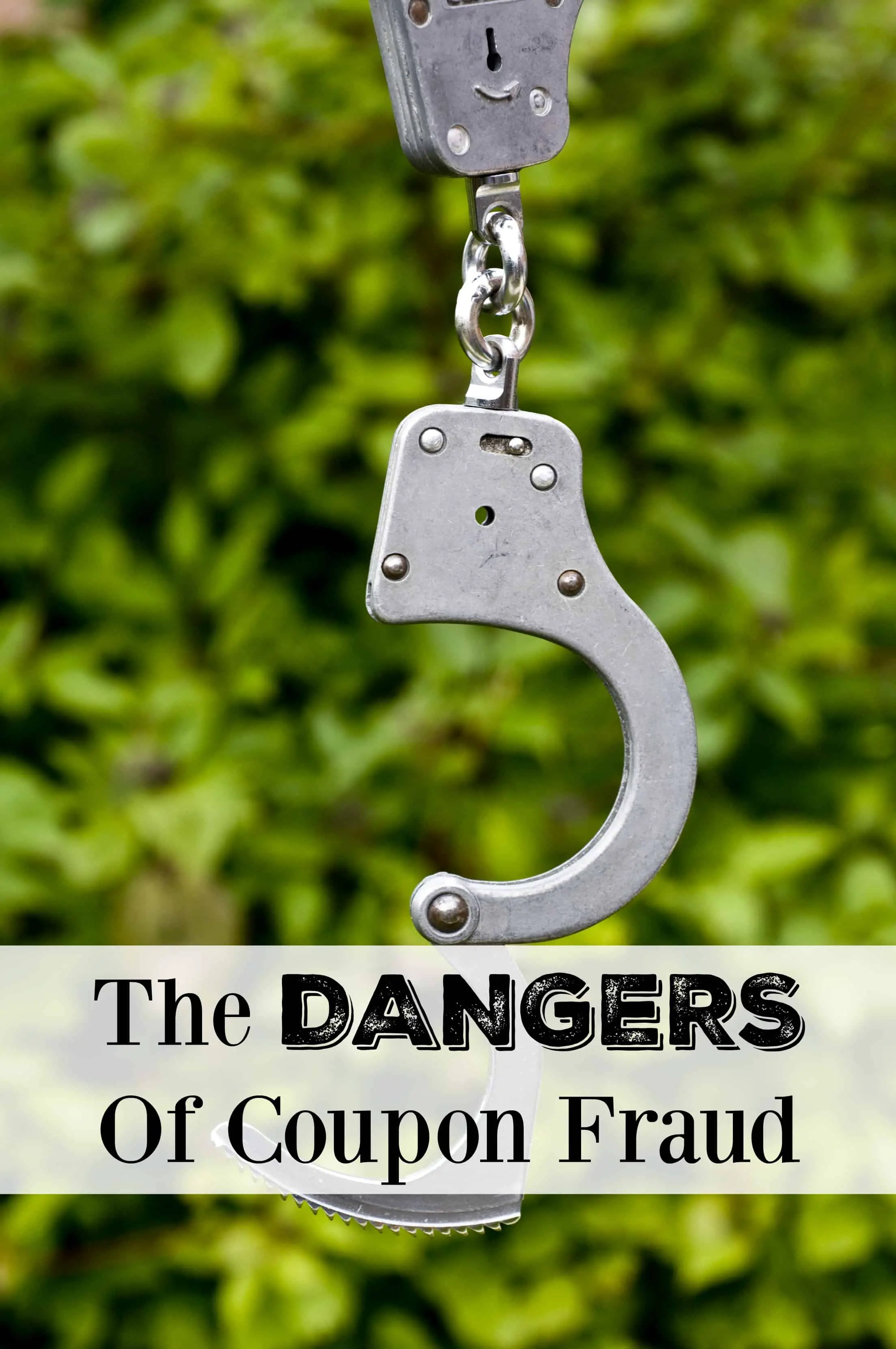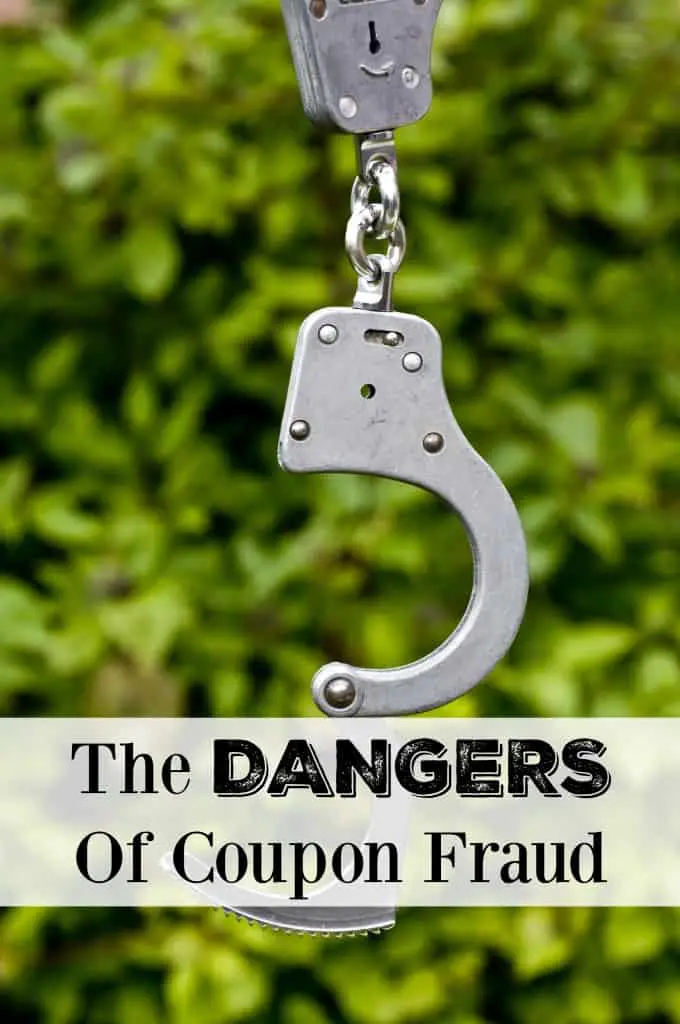*This post may contain affiliate links. As an Amazon Associate we earn from qualifying purchases.
If you’re new to the couponing world, you might’ve heard a little about coupon fraud – or maybe not! In this post, we’re going to discuss what is classified as coupon fraud and the dangers of committing coupon fraud (per the Coupon Information Center) so you can stay out of trouble and on the right track for savings! Not only does coupon fraud increase the cost of goods for consumers (because of what it’s costing the coupon manufacturers), it also makes it harder for honest couponers to use their coupons! In turn, companies are reluctant to release as many coupons because of the financial loss so coupon fraud affects everyone!
1. NEVER copy coupons!
Coupon copying is absolutely a form of coupon fraud so no matter how tempting it might be to get the extra savings – just don’t do it! You risk being banned from your store or getting in even worse trouble. You are allowed 2 prints per computer and no more than that, so don’t try to find a way around that. Purchasing or trading printable coupons puts not only you at risk but copying for a friend can lead right back to you, those codes are there for a reason.
2. Do not sell your coupons!
This is something that is also considered in violation of terms of coupons. You may not sell your extra, unused coupons.
3. Manufacturer policy takes priority.
Read the fine print on your coupons. Manufacturer policy trumps store policy, so if a manufacturer’s coupon says “limit 2 per transaction”, make sure to abide by that.
4. Do not disregard the expiration dates!
Expiration dates are put in place for a reason, so try to avoid it when you can. Of course, we have all likely presented an expired coupon by mistake, but do not get in the habit of doing so and trying to get away with it.
In general, if a deal sounds too good to be true and you’re not getting your information directly from the fine print of the coupons and the deals stated in the flyer, double check to make sure you won’t be committing coupon fraud. If you suspect you’ve been given wrong information or presented with coupon fraud, do not confront the people individually, but instead keep all of the information and contact the Coupon Information Corporation. Most importantly, no matter what kind of couponing you get involved in, don’t ever pay for coupons!
Keep in mind that you don’t necessarily need to be organizing and running a huge coupon fraud organization or operation to get in trouble. This couple was buying coupons online and got into huge trouble – so don’t think it can’t happen to you! It can happen to anyone, and the best way to avoid it is just to continue your best practices with couponing and stay away from anything that sounds too good to be true. If you have questions about what is and isn’t acceptable, you can always refer to the Coupon Information Center FAQ page to double check!
The best part about our wonderful community here at Barefoot Budgeting is the honest and considerate couponers. What we aren’t sure of or don’t know yet, we ask without judgment. Let’s continue to keep it that way and be responsible so we can maximize our savings!


